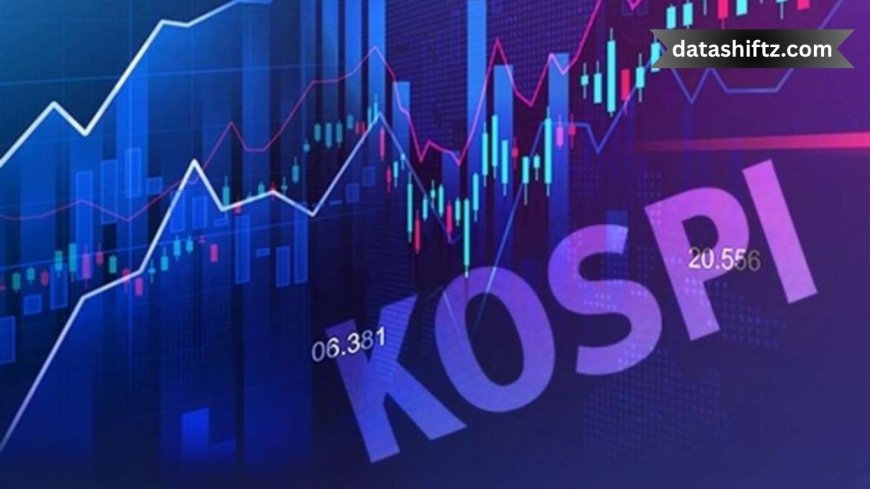Kospi Index Today: A Comprehensive Market Overview

The Kospi Index, South Korea’s benchmark stock market index, serves as a critical barometer for the nation’s economic health and investor sentiment. Investors, analysts, and traders closely monitor its daily fluctuations to make informed decisions. In this article, we delve into the latest movements of the Kospi Index today, analyze the factors influencing its performance, and explore what the market trends signify for the future.
Understanding the Kospi Index
The Korea Composite Stock Price Index (Kospi) represents the market capitalization-weighted index of all common stocks traded on the Korea Exchange (KRX). Since its inception in 1983, the Kospi has evolved into one of Asia’s most influential stock indices, reflecting the performance of South Korea’s economy and major corporations.
Characteristics of the Kospi Index
-
Market Capitalization Weighted: Companies with larger market caps have more influence on the index.
-
Broad Coverage: Includes over 800 stocks across multiple sectors.
-
Economic Indicator: Acts as a real-time reflection of South Korea’s economic and corporate health.
Kospi Index Today: Market Snapshot
As of today, the Kospi Index closed at 2,675.43 points, experiencing a slight decline of 0.45% from the previous trading session. Trading volume reached approximately 300 million shares, reflecting moderate investor activity. The day’s performance was influenced by a combination of domestic economic data and global market sentiment.
| Metric | Value |
|---|---|
| Closing Price | 2,675.43 points |
| Change | -0.45% |
| Trading Volume | 300 million shares |
| Market Capitalization | $1.5 trillion USD |
| Highest Point Today | 2,690.10 points |
| Lowest Point Today | 2,670.25 points |
Sector Performance: Winners and Losers
The Kospi’s sectoral performance today reflected divergent trends. Technology and automotive sectors remained strong, buoyed by positive earnings reports, while financials and energy sectors faced pressure amid global uncertainties.
| Sector | Performance (%) | Notes |
|---|---|---|
| Technology | +1.25% | Strong demand for semiconductors |
| Automotive | +0.85% | Robust export data |
| Financials | -1.10% | Regulatory concerns and global rate hikes |
| Energy | -0.90% | Decline in oil prices |
| Consumer Goods | +0.20% | Stable domestic consumption |
Factors Influencing Kospi’s Performance Today
Several factors have influenced the Kospi Index's trajectory today, reflecting both domestic and international conditions.
1. Global Economic Sentiment
Investor sentiment has been cautious due to ongoing concerns about inflation, interest rate hikes by major central banks, and geopolitical tensions. These external pressures often lead to volatility in emerging markets like South Korea.
2. Domestic Economic Indicators
South Korea’s recent GDP growth rate and industrial production figures were slightly below market expectations, causing some apprehension among investors about near-term economic growth.
3. Corporate Earnings Reports
Earnings announcements from key market players like Samsung Electronics and Hyundai Motor Company have positively influenced their respective sectors, offsetting some broader market weaknesses.
4. Currency Fluctuations
The Korean won experienced mild depreciation against the US dollar today, which can impact export-oriented companies positively but raises concerns about imported inflation.
What Does This Mean for Investors?
For investors, today’s movement in the Kospi Index offers both challenges and opportunities. While external risks persist, underlying fundamentals in key sectors like technology and automotive remain promising.
Key Takeaways for Investors
-
Diversify Holdings: Given sector-specific volatility, diversifying across sectors can help manage risk.
-
Focus on Export Leaders: Companies with strong global demand may offer resilience amid currency fluctuations.
-
Monitor Global Trends: Stay updated on interest rate policies and geopolitical developments affecting global markets.
-
Consider Long-term Prospects: Despite short-term volatility, South Korea’s innovation-driven economy presents long-term growth potential.
Recommended Action Plan for Investors
Here’s a checklist to guide investment decisions in today’s market environment:
-
Review Portfolio Exposure: Assess concentration in sectors vulnerable to external shocks.
-
Stay Informed on Earnings: Track quarterly earnings reports for insights on corporate health.
-
Watch Currency Movements: Understand the impact of won-dollar exchange rates on your holdings.
-
Evaluate Risk Appetite: Adjust your portfolio in line with your comfort with market volatility.
-
Leverage Professional Advice: Consult financial advisors for tailored strategies.
Conclusion
The Kospi Index today encapsulates the complex interplay of global and domestic forces shaping South Korea’s financial markets. Despite minor declines, sectors like technology and automotive demonstrate resilience, underpinning a cautiously optimistic outlook. For investors, maintaining a balanced approach, staying informed, and adapting to evolving market conditions will be key to navigating the current landscape.





























